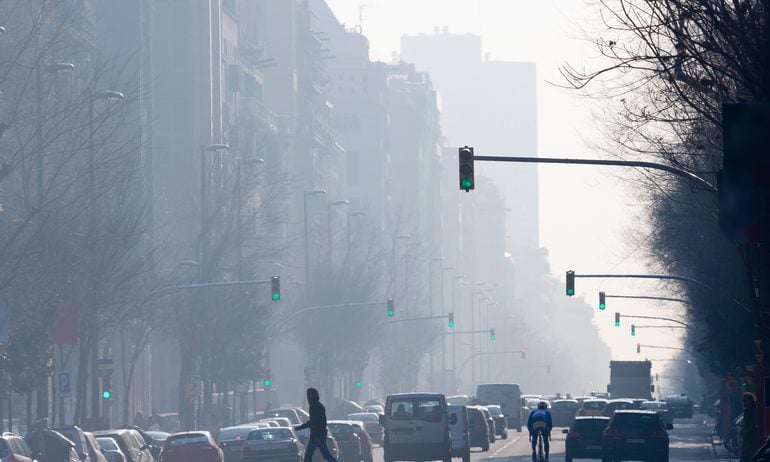These States Plan to Phase Out Gas Car Sales
California, New Jersey and Virginia are among at least a dozen states that plan to wind down gas vehicle sales over the next decade.

Many, or all, of the products featured on this page are from our advertising partners who compensate us when you take certain actions on our website or click to take an action on their website. However, this does not influence our evaluations. Our opinions are our own. Here is a list of our partners and here's how we make money.
Over the years, consumer perception of electric vehicles has been all over the map, with some early adopters embracing them and others feeling apprehensive about issues like battery range, price, and the environmental impact of EV production.
Within the next decade, however, the choice to buy an EV or other “zero-emission” model might produce no hesitation at all: It might be the only new car you can buy where you live.
At least a dozen states have made moves to restrict the sale of vehicles driven purely by internal combustion engines, with nine working toward an all-out ban by 2035. The states are following California’s Advanced Clean Cars II (ACCII) rule, which requires automakers and car dealers to sell increasingly more zero-emissions vehicles each year between 2026 and 2035. For example, in 2026, 35% of new vehicles on car lots within an ACCII state must be emission-free. That percentage will gradually increase year after year to 100% by 2035 — an effective ban on purely gas-powered vehicles.
In addition to EVs, California’s definition of zero-emission vehicles includes battery-electric, hydrogen fuel cell electric and plug-in hybrid electric vehicles.
So far, eight states and Washington, D.C., have adopted ACCII for light passenger vehicles. The states are Maryland, Massachusetts, New Jersey, New York, Oregon, Rhode Island, Washington, and, most recently, Virginia. Connecticut and Maine are also considering the measures but haven't adopted them formally, while Colorado, New Mexico, Delaware and Minnesota have partially adopted a large portion of the standards.
What the ban means for owners of gas cars
To be clear, the ACCII regulations will only prohibit the sale of new internal-combustion passenger vehicles (cars, SUVs and light-duty trucks) starting in 2035. They wouldn’t, however, require drivers of gas cars to forfeit ownership of previous models.
Residents of these states could still buy used gas-powered vehicles within the state’s borders. Likewise, nothing in the regulation would prohibit drivers from buying a new gas car from a state without the ban, then registering it within a state that has one. Although amendments can be made at any time, currently only the sale of gas-powered cars by 2035 would be prohibited in a state whose standards are identical to ACCII.
Of course, regardless of the ban, drivers who want a new internal-combustion vehicle in 2035 may have fewer choices. Already Stellantis — the company behind Chrysler, Dodge, Fiat, and Jeep — has warned dealers it will ship fewer gas cars to states that follow California’s emissions standards, while also pledging to have electric vehicles make up half of its North American sales by 2030.
Meanwhile, other automakers have announced plans to cease production of fully gas-powered cars at around the same time that the ACCII would phase them out. For example, General Motors plans to stop making gas cars by 2035, with an earlier date of 2030 for a fully electric lineup of Cadillac and Buick. Ford has said it plans for EVs to make up half of car sales by 2030. Other car companies that have pledged to sell electric only include Volvo (2030), Mercedes-Benz (2030), Honda (2040) and Volkswagen (2040).
While some of these goals are objectively ambitious (and often contingent on market conditions), they’re in lockstep with gas car bans planned by nations with large economies, including those in the European Union (2035), Japan (mid-2030s) and South Korea (2035), among others.
» MORE: Should I buy an electric car?
Will other states ban gas cars in the future?
As it stands, most states don't have plans to discontinue the sale of gas-powered vehicles in the near future. But it’s possible that other states will join those that do, especially if they tend to follow California’s stricter vehicle emission standards.
Because of the Clean Air Act, no state except California can create its own fuel economy standards, but states can choose to adopt California’s guidelines under a provision called Section 177. Presently, 17 states have emission standards tied to California’s: Colorado, Connecticut, Delaware, Maine, Maryland, Massachusetts, Minnesota, Nevada, New Jersey, New Mexico, New York, Oregon, Pennsylvania, Rhode Island, Vermont, Virginia and Washington.
So far, only eight of these states have formally adopted a standard that’s identical to California’s Advanced Clean Cars II regulations. Colorado, New Mexico and Delaware have partially adopted the standard, but instead of a 2035 ban on gas-powered vehicles, these three states will require 82% of new car sales to be emission-free by 2032. Minnesota enacted its “Clean Cars Minnesota” rule this year, which requires automakers to cut down on emissions and produce more zero-emission cars. However, it doesn’t have plans to ban gas cars.
Likewise, neither Pennsylvania nor Nevada have announced plans to follow California’s standards. Maine and Connecticut were expected to adopt ACCII regulations, though both states have so far voted against them.
If states don’t follow California’s standards, they’ll have to comply with federal regulations, which currently don't have a plan to ban gas vehicles. But federal policy is shifting. In March 2024, the Environmental Protection Agency finalized measures that require automakers to gradually reduce the emissions associated with the vehicles they sell. The rule applies to model years 2027 through 2032.
While the new rules don't require a specific percentage of sales to be zero-emission vehicles, the Biden administration estimates the new emission standards could be met if EVs make up 56% of new car sales by 2032 (with another 13% of sales composed of plug-in hybrids or other partially electric cars).
It’s not a ban per se on entirely gas-powered vehicles. But, when coupled with state bans, plus automakers’ pledges to produce less of them, it could mean fewer engines that go "potato potato potato" and more that hum quietly off dealership lots.

